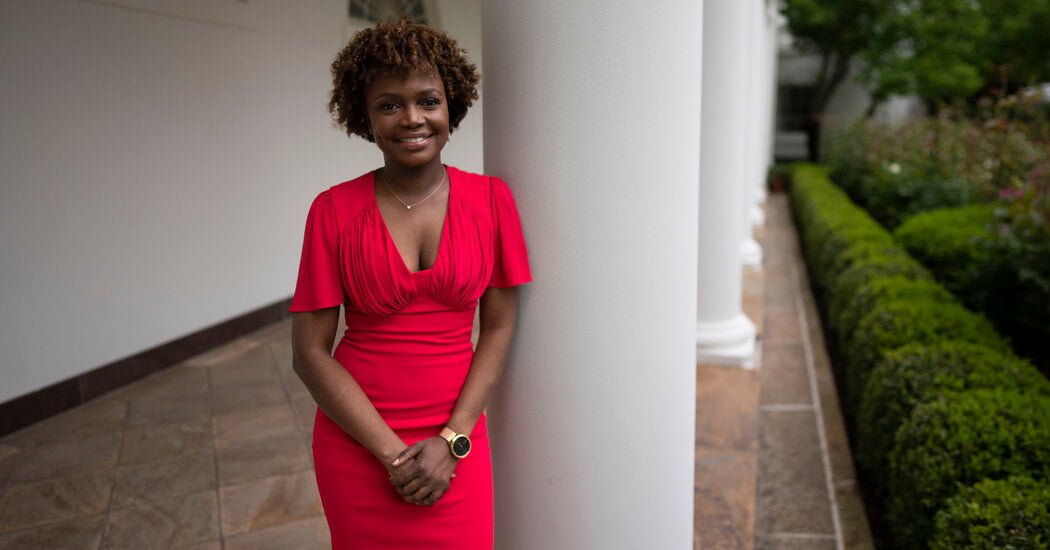In a historic tribute to journalistic trailblazers, the White House press secretary, Karine Jean-Pierre, has designated a new lectern in the White House briefing room to honor the legacies of Alice Dunnigan and Ethel L. Payne. This distinguished recognition marks a poignant moment as both women, who faced racial discrimination during their time as reporters, are celebrated in the very setting where their contributions were once overlooked.
Alice Dunnigan, the first Black woman to be credentialed to join the White House press corps, faced a solitary start on her first day covering the White House. Despite arriving early for a news conference with President Harry Truman, she felt invisible as her colleagues made no effort to acknowledge her presence. Now, more than 75 years later, her memory is being honored through the dedication of the new lectern.
Karine Jean-Pierre, the first Black woman to serve as White House press secretary, emphasized the symbolic significance of the White House lectern as a representation of freedom and democracy worldwide. Naming it in honor of Alice Dunnigan and Ethel L. Payne is seen as a fitting tribute to these pioneering journalists.
April Ryan, Washington bureau chief and senior White House correspondent for The Grio, expressed the importance of feeling “seen” with the decision to honor Dunnigan and Payne. Ryan, the longest-serving Black woman in the White House press corps, highlighted the role of Black journalists in asking questions and covering stories often overlooked by others.
Both Dunnigan and Payne faced challenges and discrimination during their tenure. Dunnigan, who had to pawn her jewelry to make ends meet, emphasized the hard-earned nature of her credentials. Payne, known as the “first lady of the Black press,” was shunned by President Dwight Eisenhower after raising questions about civil rights.
Despite facing adversity, these pioneering journalists made significant contributions to reporting on civil rights issues. Payne’s coverage of the civil rights movement was so influential that President Lyndon Johnson invited her to the signings of the Civil Rights Act of 1964 and the Voting Rights Act of 1965, presenting her with a pen used in signing the landmark legislation.
The dedication of the White House briefing room lectern serves as a testament to the resilience, courage, and journalistic prowess of Alice Dunnigan and Ethel L. Payne, breaking barriers and leaving an indelible mark on the history of journalism.

